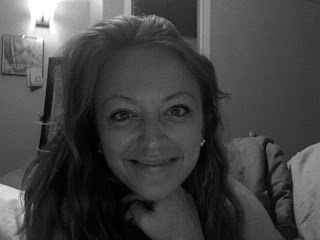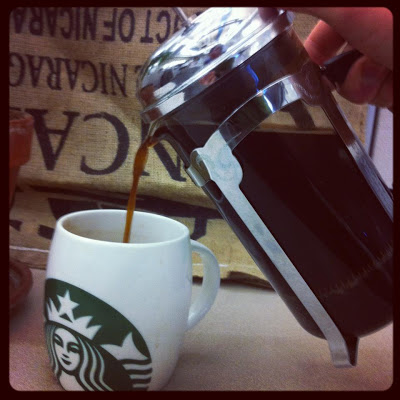Guest Post | Why I Write.
Friends, today’s amazing guest post is brought to you by the lovely Rachel McGowan. Please read, please share, please comment. Please tell me I’m not the only one that cried while reading this. Thanks, Rachel!
~
I sat down to write today in my favorite coffee shop, like I usually do. I was rushed, like I usually am. I plugged in my headphones, found my favorite writing music, and opened up a blank page. Next to me sat two women, in their mid-thirties. This is not an uncommon sight to see, especially at a coffee shop. We women love our coffee dates with our heart friends.
Because I’m a curious person [and an avid people-watcher], I positioned my computer so that the pair was in my direct line of vision. Their mannerisms were fascinating; their laughter was like a magnet. I knew these women had a special connection, though I couldn’t figure it out.
Then one of the women opened a journal. It was a simple blue spiral bound notebook, probably found on a sale at a grocery store. She began to read.
As soon as I heard the word “addiction”, I turned off my music.
[And yes, I sat with my headphones still in my ear, with no music playing. A good creep learns this trick early on.]
I stopped what I was originally writing, and just listened. I was stunned by what I heard.
The woman sat in the middle of this coffee shop, and read the story of her struggle with an addiction to alcohol. She sat with her friend and simply spoke the cursive words written on those pages of that journal. She read the words that described the pain she felt when her own mother was diagnosed with cancer, and how that pain led her to strong vodka. She described the moment where she was so drunk she missed her mother’s funeral. She said she was “crushed by a self-imposed crisis” and was “so unaware of God’s presence because of the way alcohol made her feel.”
She said she had gotten more DUI’s than she thought possible, and that she never had enough self-control to give up her keys when she was inebriated.
She described the way it felt to be in jail for manslaughter. She said that you don’t know pain until you know what it’s like to kill the innocent little girl in the other car. When she got to the part about the father of the little girl reading a letter to her in the courtroom, I got chills.
Page by page, she described her nightmare of a life to her friend across the table. There were tears and laughter and an appropriate use of air quotes. Her friend cried with her, laughed with her, and listened to every word she spoke. The pen marks were sharp knives in the air, clawing at every piece of flesh they came into contact with. My heart was shivering.
When she finished, the friend who had been listening the entire time had tears in her eyes. She looked this woman in her eyes, and she said, “Oh girl. You are reading my story exactly.”
And then the friend told this woman about hope.
This friend spoke of truth, of freedom, of sobriety. She sang over this woman the melody of a life un-bound by chains, un-clouded by addiction.
The bond these women shared was based on nothing that could be seen on the surface. It wasn’t that they worked together, or shared the same love for Thai food. They had both drank the poison of substance abuse, and had both seen the ramifications of letting that addiction take over their life. They knew what it felt like to choose alcohol over literally anything else, no matter the cost.
This friend helped the woman take a step out of the darkness. She spoke life.
And I think this is why I write.
Our stories have more power than we will ever be able to understand. It is a level of power that is frightening.
It’s chilling to think of the lives we can affect by writing down our histories and reading them to the world. It is terrifying to share our pasts, to write them out, to bare our souls.
There is so much depth to our imperfect cursive handwriting, or the periods at the ends of sentences, and the world is desperate for that depth.
It is an unexplainably beautiful thing to let down that wall, to expose our insides part by part., and the world is desperate for that beauty.
It is a disservice to humanity if we silence our own stories, even when they are ugly. To speak them is to speak life, and the world is desperate for that life.
To let people see our soul comes with a crippling wave of emotion. Even though it means we might change a life, it is still the scariest thing in the world.
But it is tragically scarier not to.
 Rachel McGowan is a California-born 20-something writer, reader, dreamer, joke-teller, car-dancer and shower-singer. She loves learning from people and is passionate about the power of story and seeing good come from gross. Rachel works with college students and drinks diet cokes back to back to keep herself sane. She often writes about love, sex, singleness and relationships — and the awkward joys and struggles of them all.
Rachel McGowan is a California-born 20-something writer, reader, dreamer, joke-teller, car-dancer and shower-singer. She loves learning from people and is passionate about the power of story and seeing good come from gross. Rachel works with college students and drinks diet cokes back to back to keep herself sane. She often writes about love, sex, singleness and relationships — and the awkward joys and struggles of them all.
National Coffee Day!
I’m Not the Story Weaver.
I am a writer. Consequently, my general outlook on life is a series of archetypes, themes, plots, summaries, critiques… there’s a lot of pre-writing and re-writing going on in my head, and there’s no switch to turn it off. All the world is a stage, you know.
But it’s the endings I’m not good at. I’m a total sap when it comes to endings. Mostly, I envision that the story actually comes to an end, a resolution. I often realize much further on in my writing and reading that this is a false assumption.
Lately, I’ve begun to wonder about our fascination with the fairy-tale ending. We began by expecting it, and now we’ve become disillusioned with it, naturally.
But where does the fallacy lie in “happily ever after”?
Is there no such thing as happiness?
Or have we made a bad habit of ending the story at the wrong part?
So the prince and the princess get married… and??? What comes after that? What exactly constitutes the “happily ever after”? A fairy-tale prince or princess would never be unfaithful to one another. The prince would never be a deadbeat dad. The princess would never become a bitter, self-conscious old woman that drives her prince and her children crazy. They would never lose the castle, the talking livestock, and the pumpkin carriage in a faulty investment. They would never bicker or become alcoholics or abuse their kids. They would never die of terminal illnesses.
And yet, here we are. We live in a dichotomy of pure joy and pure tragedy. We find love and we find hate. We can’t get rid of the evil stepsisters and the villains; quite often we are our own worst enemy. We make the best decisions we’ve ever made, and then we screw it up.
Maybe it’s the ambiguity of it, the elusive “happiness” that leaves us confused and frustrated and empty when we try to live in the “ever after.” The brokenness wasn’t supposed to happen, but it did, and we can’t see how it could ever be right again. We have no pre-text for what to do when we screw up, so the “happily ever after” plan is eradicated.
Or maybe it’s that we’ve totally abandoned the possibility of redemption.
I yearn for the easy answer, the redemptive ending. I wish I could tie the strings of all our loose ends together so that our lives would never unravel as they so often do. I keep finding myself trying to weave it all together, tightly, to make it mean something, to make our stories and our selves whole again.
I think it’s better if I just stop trying to rewrite the thing. Life is beautiful and gripping and horrific and triumphant and tragic enough on its own.
I’m not the Story-Weaver. I need to just keep reading.
The Shrinking Margin.
I don’t want to miss it.
- «Previous Page
- 1
- 2
- 3
- 4
- 5
- …
- 9
- Next Page»

